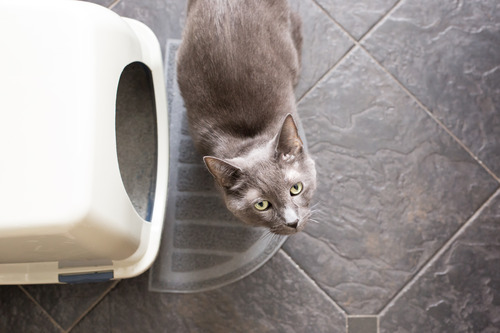If you’ve noticed your cat is not using their litter box as usual and is instead choosing other spots around your home, it can be both puzzling and frustrating. Understanding why your cat is displaying this behavior is the first step towards helping them get back on track. This guide explores common reasons behind why cats may start peeing outside the litter box and how you can address this issue. If you’re concerned about your cat’s behavior, call Triangle Animal Clinic at (936) 756-3318 for professional advice.
Recognizing Litter Box Aversions
Cats can develop aversions to their litter boxes for several reasons, which can lead them to seek alternative areas around the house. It’s important to closely observe any changes in your cat’s environment or litter box setup that may be triggering this behavior.
- Cleanliness and Maintenance: Cats prefer a clean environment to do their business. A litter box that is not scooped regularly or contains odors might discourage your cat from using it.
- Type and Placement of the Litter Box: The size and type of litter box can also play a role. Some cats prefer open boxes while others like covered types for privacy. The location should be quiet, accessible, and away from noisy household appliances.
- Litter Preference: Cats are particular about the texture and smell of their litter. Sudden changes in the type of litter might be the cause of litter box avoidance.
Health-Related Issues
When a cat pees outside the litter box, it could be a sign of an underlying health issue. Prompt veterinary care is essential to rule out any medical problems.
- Urinary Tract Infections (UTI): A common cause that can make urination painful and frequent.
- Kidney Issues: Older cats are especially prone to kidney problems, which can affect bladder control and lead to accidents in the house.
- Diabetes: This condition can lead to increased urination, sometimes overwhelming a cat’s normal habits.
If you notice signs of distress, increased thirst, or changes in urination frequency, call Triangle Animal Clinic for an evaluation.
Exploring Behavioral Causes
Behavioral issues can often lead to changes in urination patterns. Stress, anxiety, and changes in the household can all influence your cat’s behavior.
- Stress and Anxiety: Changes in your home, such as new people, pets, or even rearranging furniture, can stress your cat. Provide a stable environment and consider stress-reducing products.
- Marking Territory: Cats sometimes urinate to mark their territory, especially if they feel threatened by another cat in or around the home.
Effective Strategies to Encourage Proper Litter Box Use
Reversing this unwanted behavior involves several strategies that can encourage your cat to use their litter box again.
- Keep the litter box impeccably clean and stick to a litter your cat prefers. Consider having multiple litter boxes in different locations around your home.
- Provide toys, scratching posts, and interaction to reduce stress and boredom.
- Behavioral Modification: Sometimes, professional help from a veterinarian or a cat behaviorist might be necessary to address more ingrained issues.
For further guidance and to discuss your specific situation, please call Triangle Animal Clinic at (936) 756-3318. Our team is here to help ensure your cat’s health and well-being, guiding you through the process of addressing and resolving litter box issues.






